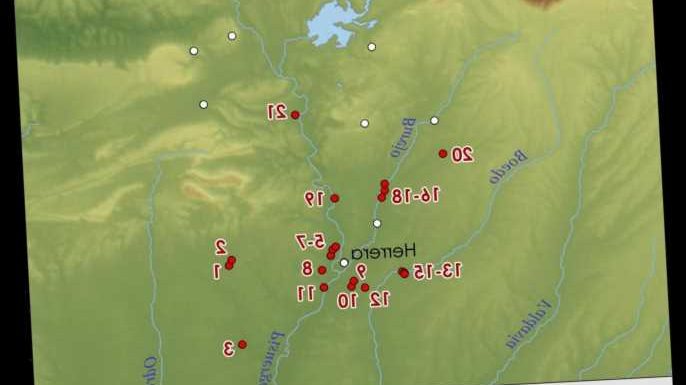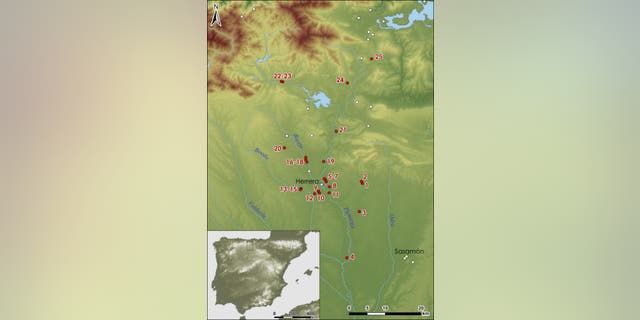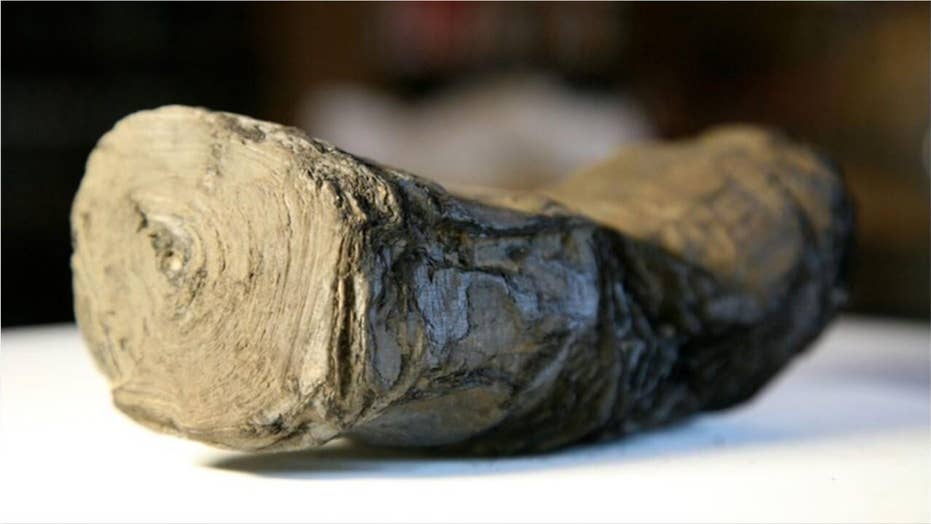
Mysterious scrolls linked to Julius Caesar could be read for first time ever
This 2,000 year old scroll could be read for the first time ever. Linked to Julius Ceaser it was burned and buried before being uncovered in 1752.
Archaeologists have uncovered dozens of 2,000-year-old army camps from Ancient Rome in Spain, according to a new study.
The research, published in Geosciences, details the enormity of the Roman Army as it
marched, conquering the Iberian Peninsula and subsequent areas. The experts uncovered 66 camps in the northern part of the country, all designed for training and shelter. They range in size, with some as small as a few thousand square feet, all the way to 37 acres (15 hectares).
"The remains are of the temporary camps that the Roman army set up when moving through hostile territory or when carrying out maneuvers around their permanent bases," study co-author João Fonte said in a statement. "They reveal the intense Roman activity at the entrance to the Cantabrian Mountains during the last phase of the Roman conquest of Hispania."

Roman military presence in Castile (Credit: romanarmy.eu)
HAS JESUS' CHILDHOOD HOME BEEN DISCOVERED IN NAZARETH?
The 66 camps, which were used as temporary housing for the Roman soldiers as they marched through the Iberian Peninsula, were discovered using a number of different technologies, Fonte added.
"We have identified so many sites because we used different types of remote sensing," Fonte explained. "Airborne laser scanning gave good results for some sites in more remote places because it showed earthworks really well. Aerial photography worked better in lowland areas for the detection of cropmarks."
The camps aided in the Roman Empire's exploitation of natural resources, such as tin and gold, some of which were used to make coins and jewelry.
Researchers have discovered a number of Ancient Rome's secrets in recent memory.
POMPEII RUINS UNEARTH 'MASTER AND SLAVE' REMAINS
In 2017, a rare Roman coin was discovered on a remote Scottish island.
In October 2019, a pair of 2,000-year-old Roman scrolls believed to have belonged to Caesar's family that were buried and charred during Vesuvius' eruption, were virtually "unwrapped" for the first time ever.
In June 2020, experts discovered an entire ancient Roman city in Italy via Ground Penetrating Radar technology. The following month, 13 ancient Roman amphorae, or jars, were recovered from a seafood store in the Spanish city of Alicante.
In October 2020, an extremely rare Roman coin commemorating the assassination of Julius Caesar surfaced, one that could be worth millions of dollars.
CLICK HERE TO GET THE FOX NEWS APP
Source: Read Full Article
